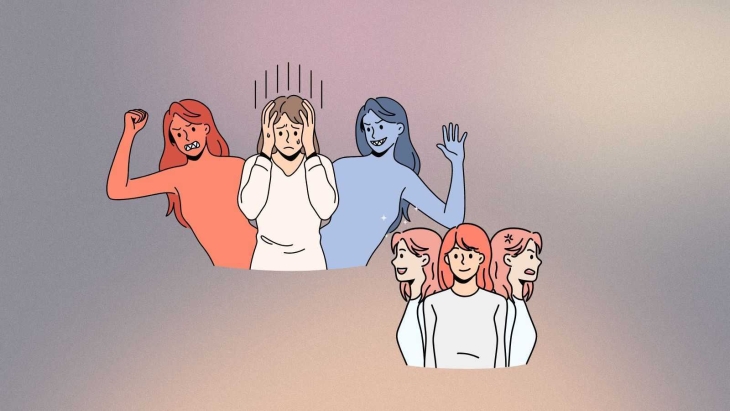Recent Posts
Most Popular
A loved one was just diagnosed with bipolar disorder. How can I support them?

To love someone is to take care of them, in good health and in bad.
According to the Centers for Disease Control and Prevention (CDC), 20% of Americans have cared for a loved one with a health concern in the past month. As the one giving care, you might feel overwhelmed by the huge task ahead of you.
Especially in a mental health diagnosis like bipolar disorder, we need guidance and skills in order to know what to say and what to do to be as supportive to them as possible. But be strong of heart because your care and support will be valuable and beneficial to someone with bipolar disorder.
After the diagnosis
Your loved one has received their diagnosis of having bipolar disorder. For a long while, you and your family members might have had a lingering suspicion that something is not right. Your loved one has moments of “ups” and “downs”.
Manic episode symptoms:
- Feeling elated, irritable and easily excitable,
- Feeling very active and energetic,
- Not sleeping, or sleeping less,
- Speaking very quickly and jumping from one idea to another,
- Able to get many things done with unending energy,
- Showing increased appetite for pleasurable activities,
- Feeling highly lucky, powerful, or important.
Depressive episode symptoms:
- Feeling depressed, very sad, or anxious,
- Having a “heavy” feeling,
- Not being able to fall asleep easily, experiencing interrupted sleep, or sleeping too much,
- Speaking very slowly or not remembering what one wants to say,
- Finding it hard to concentrate and make decisions,
- Feeling discouraged and unable to do tasks,
- Being uninterested in activities,
- Feeling alone, isolated, worthless, and thinking of death or suicide.
Now that you understand that these manic and depressive symptoms are part of having bipolar disorder. Let your loved one know that you understand them better. Ask questions about things that you do not understand yet, including warning signs and their triggers. Be there to listen without judging or minimizing their experience.
Once you get the picture, talk with your love about ways you can help them manage triggers and you can spot possible behavior patterns that trigger manic or depressive symptoms.
Plan together
It is most likely that after the mental health professional gave your loved one the diagnosis, they were also able to talk about treatment plans for bipolar disorder. Ask them to orient you about these plans including what to do during a manic or depressive episode.
Planning is more effective when you are both in a calm and stable mood. Talk about:
- Taking notes of what strategies worked well in the past,
- Creating code words or hand signals that easily tell you that the loved one is having a difficult time. Agreeing to use simple words or signs that represent feelings and situations that are hard to say when one is in the middle of a manic/depressive mood makes it easier for both of you to communicate quickly and easily.
- The possibility of needing help with creating and maintaining a routine, especially around self-care, meals, and sleep.
- Making plans in case a crisis occurs.
Help each other with mood changes.
Bipolar disorder is characterized by intense mood swings that affect and potentially harm the individual with bipolar disorder and those around them. So practicing with them the coping skills and tools that their mental health therapist taught them allows you to guide them during actual difficult situations.
Being a caregiver to a loved one with bipolar disorder is challenging, so learn how to take care of yourself and your wellbeing so that you can continue being an effective source of support. With you assisting them in getting proper treatment, in their compliance to medication, and in nurturing social connections, your loved one can live a full and happy life.
Register and easily match your qualifications with fulfilling mental health jobs and opportunities all across the US!








Comments